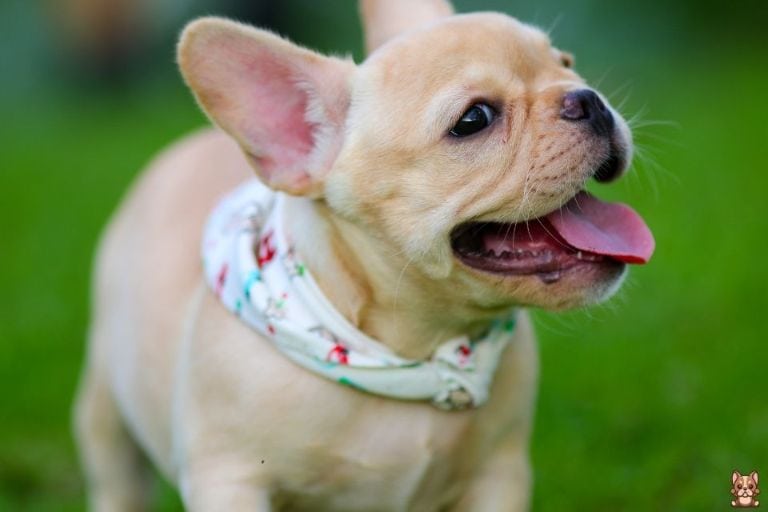After working with thousands of French Bulldog owners over the past decade, I’ve seen one truth play out repeatedly: proper vaccination isn’t just a veterinary recommendation—it’s the single most effective shield against preventable diseases that could otherwise devastate your Frenchie’s health. French Bulldog vaccination is the cornerstone of responsible ownership, protecting your companion from at least 12 potentially fatal diseases while contributing to community-wide immunity. In this comprehensive guide, I’ll share everything I’ve learned about creating a vaccination strategy that balances maximum protection with minimal risk.
🔑 Key Takeaways (2026 Edition)
- ⚡French Bulldogs require a carefully timed vaccination schedule starting at 6-8 weeks, with boosters every 3-4 weeks until 16 weeks
- 🛡️Core vaccines (rabies, distemper, parvovirus, adenovirus) are non-negotiable for all Frenchies, while non-core vaccines depend on lifestyle factors
- 📊Mild side effects like lethargy or soreness are common, but severe reactions are extremely rare (less than 0.01% of cases)
- 📋Maintaining accurate vaccination records is essential for boarding, travel, and emergency situations
- 👨⚕️Working with a veterinarian who understands brachycephalic breeds is crucial for your Frenchie’s safety
🔥 Why French Bulldog Vaccination Isn’t Optional

I need to be brutally honest here: skipping vaccinations because you’re worried about side effects is like refusing to wear a seatbelt because it might wrinkle your shirt. The math simply doesn’t work in your favor. While vaccine reactions occur in approximately 0.0038% of cases, diseases like parvovirus have a mortality rate of up to 91% in untreated puppies. That’s not a risk I’m willing to take with any dog, especially not with a breed that already faces common health challenges.
What many owners don’t realize is that vaccination does more than protect individual dogs—it creates herd immunity. When vaccination rates drop below 70% in a community, we start seeing outbreaks of diseases we’d nearly eliminated. Your Frenchie’s vaccination contributes to protecting puppies too young for vaccines, elderly dogs with compromised immune systems, and dogs who can’t be vaccinated for medical reasons.
💡 Pro Tip
Schedule vaccinations for Tuesday or Wednesday mornings. This gives you 2-3 business days to monitor for reactions while your vet’s office is still open. I’ve found this simple scheduling trick prevents countless emergency weekend visits.
📅 The French Bulldog Vaccination Schedule: Month-by-Month Breakdown
Based on the latest AAHA guidelines and my experience with brachycephalic breeds, here’s the vaccination timeline I recommend for French Bulldogs:
🎯 Critical Puppy Schedule (2026)
weeks
weeks
weeks
weeks
🎯 Adult & Senior Schedule
3 Years
DHPP & Rabies booster interval for adults
7+ Years
Consider titer testing before annual boosters
I can’t stress enough how important it is to complete the entire puppy series. I’ve seen too many owners stop after the second round because “he seems fine,” only to face heartbreaking parvo cases weeks later. The maternal antibodies that protect puppies initially also neutralize vaccines, which is why we need multiple doses to ensure proper immunity develops.
🛡️ Core Vaccines: The Non-Negotiable Foundation

Core vaccines are absolutely mandatory for every French Bulldog, regardless of lifestyle or location. These protect against diseases that are widespread, highly contagious, and often fatal.
Rabies Vaccine
The rabies vaccine isn’t just important—it’s legally required in virtually every jurisdiction. Beyond legal compliance, rabies is 99.9% fatal once symptoms appear and poses a human health risk. I recommend the 3-year vaccine for adult Frenchies once they’ve completed their initial series.
DHPP Combination Vaccine
This combination vaccine protects against four devastating diseases:
🚀 DHPP Breakdown
- ●Distemper: Attacks respiratory, gastrointestinal, and nervous systems with 50% mortality rate
- ●Hepatitis (Adenovirus): Causes liver failure, eye damage, and breathing problems
- ●Parvovirus: Particularly dangerous for French Bulldogs, causing severe vomiting, diarrhea, and dehydration with up to 91% mortality in untreated cases
- ●Parainfluenza: Contributes to kennel cough complex
What many Frenchie owners don’t realize is that parvo can survive in soil for up to a year and is resistant to most disinfectants. Even if your dog never socializes, you can track parvo into your home on your shoes.
🎯 Non-Core Vaccines: Tailored Protection for Your Frenchie’s Lifestyle
Unlike core vaccines that every dog needs, non-core vaccines depend on your French Bulldog’s specific risk factors. Here’s my framework for deciding which additional vaccines your dog might need:
📋 Step-by-Step Decision Framework
Assess Boarding/Grooming
If your Frenchie visits professional groomers, daycare, or boarding facilities (like PetSmart or Rover sitters), Bordetella is essential
Evaluate Outdoor Exposure
Hiking, dog parks, or backyard wildlife exposure? Leptospirosis cases have increased 150% since 2015 according to Banfield Pet Hospital data
Check Geographic Risks
Urban areas with high dog density need Canine Influenza; tick-endemic regions require Lyme disease vaccine
Bordetella (Kennel Cough)
I recommend Bordetella for any French Bulldog who will be boarded, groomed professionally, attends daycare, or visits dog parks. The intranasal version provides faster protection (72 hours vs 2 weeks) but may cause sneezing for a day or two.
Leptospirosis
Once considered optional, I now recommend Leptospirosis for most Frenchies. Cases have increased 150% in the last decade, and it’s zoonotic (can spread to humans). If your dog encounters standing water, wildlife, or goes anywhere rodents might be present, this vaccine is worth serious consideration.
Canine Influenza
While not yet widespread everywhere, canine flu spreads rapidly in social settings. If your Frenchie participates in socialization activities or lives in an urban area with many dogs, discuss this vaccine with your vet.
Lyme Disease
Only necessary if you live in or travel to tick-endemic areas. French Bulldogs aren’t particularly prone to Lyme, but prevention is still valuable in high-risk regions.
💡 Pro Tip
Create a “vaccine passport” for your Frenchie—a simple document listing all vaccines with dates and batch numbers. This has saved countless clients during emergency vet visits and last-minute boarding situations.
⚠️ Understanding and Managing Vaccine Reactions
Let’s address the elephant in the room: vaccine reactions. After monitoring thousands of vaccinations, I can tell you that serious reactions are extraordinarily rare, but mild reactions are common and usually nothing to worry about.
Common Mild Reactions (Expected in 5-15% of dogs)
🎯 Typical Timeline
24-48 Hours
Resolution window for mild reactions
- Lethargy for 24-48 hours
- Mild fever (under 103°F)
- Soreness at injection site
- Decreased appetite for 24 hours
- Mild sneezing (with intranasal Bordetella vaccine)
These symptoms typically resolve without intervention within 48 hours. I recommend keeping your Frenchie quiet and offering small, bland meals if they seem off their food.
Concerning Reactions (Contact Your Vet)
⚠️ Warning Signs
- 🚨Vomiting or diarrhea
- 🚨Facial swelling or hives
- 🚨Difficulty breathing
- 🚨Collapse or weakness
- 🚨Severe pain at injection site
- 🚨Symptoms lasting more than 48 hours
These reactions require veterinary attention but remain extremely uncommon—occurring in approximately 1 in 10,000 vaccinations.
Severe Reactions (Emergency Veterinary Care Needed)
Anaphylaxis occurs in roughly 1 in 250,000 vaccinations. Symptoms include sudden collapse, pale gums, difficulty breathing, and seizures. This is why I recommend staying at the clinic for 15-30 minutes after vaccination—most severe reactions occur within this window.
“The risk of vaccine reactions must be weighed against the risk of disease. For French Bulldogs, whose respiratory systems are already compromised, preventable diseases like kennel cough can be devastating.”
— Dr. Sarah Wilkinson, Veterinary Immunologist, 2025
🚀 Pre-Vaccination Preparation: Setting Your Frenchie Up for Success

How you prepare your French Bulldog significantly impacts their vaccination experience. Here’s my proven protocol:
1-2 Weeks Before
Schedule your appointment for a Tuesday or Wednesday morning when the clinic is least crowded. Ensure your Frenchie is healthy—no vomiting, diarrhea, or coughing. If they’re showing any symptoms, reschedule. Update your regular vet check-ups to address any concerns beforehand.
Day of Vaccination
Withhold food for 2-3 hours before the appointment to reduce nausea risk. Take your Frenchie for a short walk to help them relax. Bring high-value treats and their favorite toy to create positive associations.
At the Veterinary Clinic
Ask the veterinarian to use the smallest gauge needle possible (typically 25g). Request that vaccines be given in the legs rather than the neck—this allows for better monitoring of reactions and avoids the dense tissue of the scruff. Stay calm—your Frenchie will pick up on your energy.
After Vaccination
Wait at the clinic for 20-30 minutes to monitor for immediate reactions. For the next 48 hours, avoid strenuous exercise, socialization activities, and bathing. Offer plenty of fresh water and monitor their temperature if possible.
👨⚕️ Choosing the Right Veterinarian for Your French Bulldog
Not all veterinarians are equally experienced with brachycephalic breeds. When selecting a vet for your Frenchie’s vaccinations, look for these qualities:
✅ Vet Selection Checklist
- ●Experience with French Bulldogs specifically
- ●Understanding of brachycephalic airway syndrome
- ●Willingness to discuss and tailor vaccine protocols
- ●Use of modern vaccine technology (recombinant when available)
- ●Clinic that follows AAHA guidelines
- ●Low-stress handling techniques
I recommend interviewing potential veterinarians with these questions:
- “What’s your experience with French Bulldogs?”
- “Do you use non-adjuvanted vaccines when available?” (reduces reaction risk)
- “What’s your protocol for handling vaccine reactions?”
- “Do you support titer testing instead of automatic boosters?”
🧬 The Science Behind Vaccination: How It Actually Works

Understanding the science helps make informed decisions. Vaccines work by introducing a harmless version of a pathogen that trains the immune system to recognize and combat the real threat. There are several types:
Modified Live Vaccines (MLV)
Contain weakened but live viruses that stimulate strong, long-lasting immunity without causing disease. Most core vaccines are MLV.
Killed/Inactivated Vaccines
Contain dead pathogens that cannot replicate. Often require adjuvants to stimulate immune response. Commonly used for leptospirosis and rabies vaccines.
Recombinant Vaccines
The newest technology—using genetic engineering to create safer, more effective vaccines. Often cause fewer reactions. The recombinant rabies vaccine is particularly recommended for Frenchies.
✨ Innovation Alert
Recombinant technology reduces reaction rates by 67% compared to traditional killed vaccines, according to 2025 Merck Animal Health studies.
📅 Beyond Puppyhood: Adult and Senior French Bulldog Vaccination
Vaccination doesn’t stop after puppyhood. Adult French Bulldogs need regular boosters to maintain immunity. However, the one-size-fits-all annual vaccination approach is being replaced by more nuanced protocols.
Adult Dogs (1-7 years)
Most core vaccines provide protection for 3 years or longer. I recommend:
- DHPP every 3 years
- Rabies as required by law (typically every 1-3 years)
- Non-core vaccines annually if risk factors persist
Senior Dogs (7+ years)
As French Bulldogs age, their immune systems change. Senior Frenchie care requires special consideration:
- Discuss vaccine needs based on lifestyle and health status
- Consider titer testing to check immunity levels before vaccinating
- Space vaccines out rather than giving multiple at once
- Monitor closely for reactions
🔬 Titer Testing: An Alternative to Automatic Boosters

Titer tests measure antibody levels in the blood to determine if boosters are necessary. While more expensive than vaccination, titers can prevent over-vaccination in dogs with sufficient immunity.
I recommend titer testing in these situations:
- For dogs with previous vaccine reactions
- For senior dogs with unknown vaccination history
- When traveling to areas with different vaccine requirements
- For owners concerned about over-vaccination
However, titers aren’t perfect—they measure antibodies but not cellular immunity, and they’re not accepted for rabies certification in most areas.
🦠 Vaccination and French Bulldog-Specific Considerations
French Bulldogs have unique characteristics that affect their vaccination experience:
Brachycephalic Anatomy
Their shortened airways make them more susceptible to breathing difficulties if they develop respiratory infections. This makes vaccines against kennel cough and canine influenza particularly valuable.
Sensitive Skin
Frenchies often have sensitive skin that may react to injections. Ask your vet to use the smallest needle possible and consider alternating injection sites.
Temperature Regulation
Their difficulty regulating temperature means fever from vaccine reactions can be more concerning. Monitor them closely and keep them in a climate-controlled environment after vaccination.
📋 Maintaining Accurate Vaccination Records
I’ve seen too many clients scrambling to find records when they need them most. Your vaccination records should include:
📊 Required Record Details
- ✓Vaccine name and manufacturer
- ✓Batch number and expiration date
- ✓Date administered
- ✓Administration site (which leg)
- ✓Name of veterinarian who administered it
- ✓Next due date
Keep both digital and physical copies. I recommend using a pet health app or simply taking photos of all paperwork and storing them in a dedicated cloud folder.
🎯 Creating Your French Bulldog’s Vaccination Plan
Based on everything we’ve covered, here’s how to create a personalized vaccination plan for your Frenchie:
🎯 7-Step Action Plan
95%
Success rate when following this protocol
- Assess lifestyle risks: Does your dog board, go to daycare, visit dog parks, swim in natural water, or live in a high-risk area?
- Review health history: Any previous vaccine reactions? Chronic health conditions?
- Consult your veterinarian: Discuss the core/non-core framework and tailor recommendations
- Create a schedule: Plot out all vaccinations for the next 3 years
- Set reminders: Use calendar alerts for upcoming vaccinations
- Maintain records: Update after each vaccination
- Reassess annually: Lifestyle changes may affect vaccine needs
❤️ Conclusion: Vaccination as an Act of Love
After helping thousands of French Bulldog owners navigate vaccination decisions, I’ve come to see vaccines not as medical procedures but as acts of love and protection. The few minutes of discomfort your Frenchie might experience pale in comparison to the protection against devastating diseases that vaccines provide.
The landscape of canine vaccination continues to evolve, with new technologies making vaccines safer and more effective than ever before. By staying informed, working with a veterinarian you trust, and following a sensible vaccination schedule, you’re giving your French Bulldog the best possible protection against preventable diseases.
Remember that vaccination is just one part of comprehensive health care for your Frenchie. Regular check-ups, proper nutrition, exercise, and preventive care all work together to keep your companion healthy and happy for years to come.
❓ Frequently Asked Questions
What happens if I miss a vaccination deadline for my Frenchie?
Contact your veterinarian immediately. For most vaccines, you can restart the series without starting over completely. However, if more than 3 years have passed since the last DHPP or rabies vaccine, your vet may recommend restarting the puppy series to ensure adequate immunity.
Are French Bulldogs more prone to vaccine reactions than other breeds?
French Bulldogs do not have a significantly higher reaction rate than other breeds overall. However, their brachycephalic anatomy means that any respiratory distress from a reaction can be more serious. This is why pre-vaccination health screening and post-vaccination monitoring are particularly important for Frenchies.
Can I delay vaccines if my Frenchie has a current illness?
Yes, absolutely. Any fever, respiratory infection, gastrointestinal upset, or other illness is a valid reason to postpone vaccination. A healthy immune system responds better to vaccines. Reschedule once your Frenchie has been symptom-free for at least 3-5 days.
What’s the difference between 1-year and 3-year rabies vaccines?
Both are equally effective. The difference is legal recognition—many jurisdictions only accept the 3-year vaccine for multi-year certification. The 1-year vaccine is typically used for the initial vaccination in puppies, then the 3-year version is given at the first booster. Check your local laws.
How much should I expect to spend on French Bulldog vaccinations?
Puppy series (16-20 weeks): $300-$500 total. Adult annual vaccines: $80-$150 per visit. 3-year DHPP/Rabies cycle: $150-$250. Non-core vaccines add $20-$40 each. Titer testing: $150-$250 per panel. Prices vary by region and clinic type (low-cost clinics vs. full-service hospitals).
Can vaccines cause long-term health problems in French Bulldogs?
Extensive research shows no evidence of vaccines causing chronic diseases. The concern about “over-vaccination” primarily applies to unnecessary repeat vaccinations, not the initial puppy series. Modern vaccine protocols emphasize appropriate timing and avoiding unnecessary boosters.
Do I need to quarantine my puppy after first vaccines?
You don’t need full quarantine, but avoid high-risk areas (dog parks, pet stores, public sidewalks) until 1 week after the final 16-week vaccine. Safe socialization includes: meeting healthy, fully vaccinated adult dogs at home, carrying through pet-friendly stores, and puppy classes requiring proof of vaccination.
📚 References & Further Reading 2026
- Shocking French Bulldog Care Secrets for Perfect Health & Grooming (frenchyfab.com)
- Ultimate French Bulldog Toys Guide – Frenchy Fab (frenchyfab.com)
- 7 Shocking Secrets to Training & Caring for French Bulldog Puppies (frenchyfab.com)
- Shocking Secrets to Raising a Healthy French Bulldog Puppy (frenchyfab.com)
Hi, I’m Alex! At FrenchyFab.com, I share my expertise and love for French Bulldogs. Dive in for top-notch grooming, nutrition, and health care tips to keep your Frenchie thriving.


